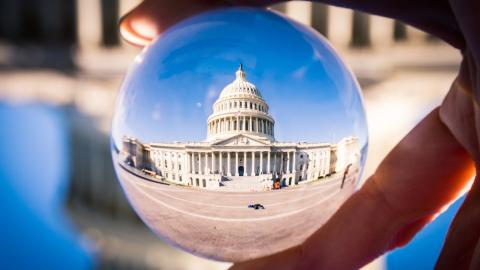Nobody would deny that politics in America is fundamentally broken. At the surface level, we have a farce called “political parties” that whip us into a frenzy every few years about Congressional seats. But below that is a much older struggle — one between moneyed interests and average citizens.
Both are deeply embedded problems that have nearly destroyed democracy in America. Here’s a brief look at how we got here, as well as some ideas on how to move forward.
An Abbreviated History of the Two-Party System
Affiliation with one political party or another is an almost entirely useless label. We know this because today we also have “pro-life Democrats,” “gay conservatives” and “Republican atheists.” This blurring of traditional lines hasn’t harmed our democracy — it’s made it richer. It has also flagged some ideologies for removal from and others for promotion onto the world stage.
America is not, and will never be, a real meritocracy of ideas so long as party politics hold sway. “First past the post” and “winner take all” elections have caused our two political parties to descend further into deeply questionable moral territory as they have attempted to outraise, outspend, and outmaneuver each other for decades. Neither Republicans nor Democrats have a monopoly on corruption.
Electing leaders from two alternating “stables” of candidates seems logical until you realize just how massive a portion of the electorate ends up without any representation after such a contest. A political landscape divided down the middle is fundamentally undemocratic.
The good news is that in the U.S., voters identifying as “political independents” has risen from 39 percent in 2016 to 42 percent in 2017. The bad news is that in doing so, they have effectively cut themselves out of the political process. These are conscientious objectors and boycotters, and we need them now more than ever.
Uncivilized Partisan Politics and Missed Opportunities
Let’s look at some of the ways that party-based politics have failed us. It’s done so by chiefly fueling the narrative that Americans are “more divided than ever,” even though this is not the case. Yet, we still let ourselves get distracted by partisan drama and infighting and forget that most of us agree on the scope of our problems, as well as with the most likely solutions.
Here is a tiny sampling of “Progressive America,” which is, increasingly, all of America:
- 82 percent believe wealthy individuals have captured government
- 66 percent want a more egalitarian distribution of wealth
- 59 percent support a $12/hour minimum wage
- 60 percent think the government has a responsibility to ensure healthcare for all
- 76 percent are concerned about the planet’s changing climate
What we have here are several policy areas that appeal to a majority of voting-age adults. Each of these policy areas, if adequately addressed, could substantially raise the standard of living for everybody in this country and help ensure that everyone’s basic needs are seen to.
The RNC’s and DNC’s charade of “division” and “insurmountable gridlock” is a farce. It’s not hard to see how we’ve empowered them to keep up the act, though. The adverse effects of social media on politics can be plainly seen all around us in the form of private filter bubbles, sometimes propagated by parasitic data-mining companies, but more often stepped into willingly.
We also should have been paying more attention to state ballot access laws over the years — the requirements are stacked against third-party candidates and independents, so it’s no wonder why we’ve been trapped in this two-party system for so long. Charting a proper course away from partisan politics and this fundamentally broken system will involve the inclusion of third parties and independents. Or maybe we’ll figure out that we’re all on the same side, stop drawing party lines, and let the governance of America be guided by just one voice — the voice of We the People — instead.
Editor's Note: This article originally published on Unite America's blog and has been modified slightly for publication on IVN.
Photo Credit: Hunter Bliss / shutterstock.com
